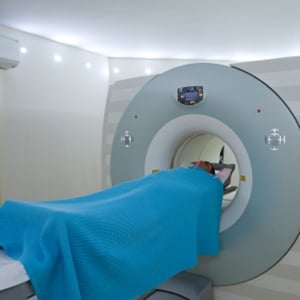
New screening guidelines for lung cancer could save tens of thousands of lives, but the CT scans involved will be costly, a new study has found.
Projections show that implementing the guidelines will detect nearly 55 000 more lung cancer cases during a five-year period, most of which would be potentially curable early stage cancers.
But, the cost to Medicare for lung cancer screening and subsequent treatment would be $9.3 billion over five years, which amounts to a $3 per month premium increase for every Medicare member.
Increased demands
"If screening is covered, it's important for Medicare and health care systems to plan for increased demand for CT imaging and early stage treatments – for example, thoracic surgery and radiation therapy," said study lead researcher Joshua Roth. He is a postdoctoral research fellow with the Fred Hutchinson Cancer Research Center, in Seattle.
"Additionally, Medicare should plan for increased expenditure in the budgeting process," Roth added.
These findings add fuel to an ongoing debate regarding the value of using low-dose CT screening to detect lung cancer in smokers. The study was released ahead of the annual meeting of the American Society of Clinical Oncology (ASCO) in Chicago. It will be formally presented at the meeting.
Two weeks ago, an advisory panel for the US Centres for Medicare and Medicaid Services (CMS) recommended against Medicare picking up the tab for annual low-dose CT lung cancer screening of older current and former smokers.
Read: Annual screenings for early lung cancer detection
"You actually had members saying the money would be better spent and you would impact more lives if you spent it on smoking cessation and smoking prevention," said Dr Otis Brawley, chief medical officer for the American Cancer Society.
The CMS panel's decision runs counter to the judgment of the US Preventive Services Task Force, which in 2013 recommended CT lung cancer screening for a very specific segment of smokers. The task force recommended annual low-dose CT scans for current and former smokers aged 55 to 79 with at least a 30 pack-year history of smoking who had their last cigarette sometime within the last 15 years. Pack years are determined by multiplying the number of packs smoked daily by the number of years a person has smoked.
Screening saves lives
Lung cancer is the leading cause of cancer death in the United States, usually because it has spread to other organs in the body by the time it is detected, Roth said.
The US Preventive Services Task Force based its recommendation primarily on the findings from the National Lung Cancer Screening Trial, which demonstrated a 20% reduction of lung cancer deaths with CT screening compared to X-ray screening. CT (computed tomography) screening is an imaging procedure that uses special X-ray equipment to create a series of detailed pictures, or scans, of areas inside the body, according to the US National Cancer Institute.
"This is unusual in that we have a very clear trial that we all agree shows screening saves lives," Brawley said. "It's illustrative of a problem in American medicine, where at some point we're going to have to realise that medical costs are growing and come to grips with that."
The new study shows that the screening programme will catch lung cancer at an earlier stage, Roth said, but that it comes at a cost.
The researchers based their model on the task force's recommendation, and assumed that about one in five high-risk patients will be offered lung cancer screening.
They used historic data from the initial rollout of mammography screening to evaluate three different possible scenarios – a most likely scenario in which 50% of patients offered lung cancer screening would undergo the procedure each year, as well as a low-use scenario of 25%of patients and a high-use scenario of 75% of patients.
The costs
In the most likely screening-use scenario, the screening would yield 11.2 million more LDCT (low-dose computed tomography) scans and result in 54 900 more lung cancers detected over five years, compared to no screening. The proportion of early stage diagnoses would increase from 15% to 33%.
But it comes with a cost. The total five-year Medicare expenditure for LDCT imaging, diagnostic workup and cancer care would be $9.3 billion, or about $3 per month for every Medicare member.
Those costs break down as $5.6 billion more for imaging, $1.1 billion more for diagnostics, and $2.6 billion more in cancer care, the study authors said.
In the low- and high-screening use scenarios, the total five-year Medicare expenditure would be $5.9 billion and $12.7 billion, or a $1.90 and $4.10 monthly premium increase per Medicare member, respectively.
Brawley said policymakers have an obligation to weigh questions such as whether the money spent on lung cancer screening would be better spent on smoking cessation, which would prevent lung cancer altogether.
Read: Quitting smoking is cost-effective
Added expense
"Personally, I have a problem with that statement, because that writes off people in their 50s and 60s who are at risk for lung cancer," Brawley said. "I don't have the answers."
Dr Harvey Pass, chief of thoracic oncology at the Perlmutter Cancer Centre of NYU Langone Medical Centre in New York City, said the new findings provide a strong argument for Medicare covering the cost of lung cancer screening.
"In the United States, prices for a carton of cigarettes can vary from $30 to $70 for a brand name," Pass said. "For the cost of one carton of cigarettes, an individual would be able to afford the monthly premium, according to this study, for Medicare to cover the added expense of lung cancer screening."
Read more:
CT screening cuts lung cancer death
CT scan benefits high-risk smokers
Older, heavy smokers at high risk of lung cancer




 Publications
Publications
 Partners
Partners










